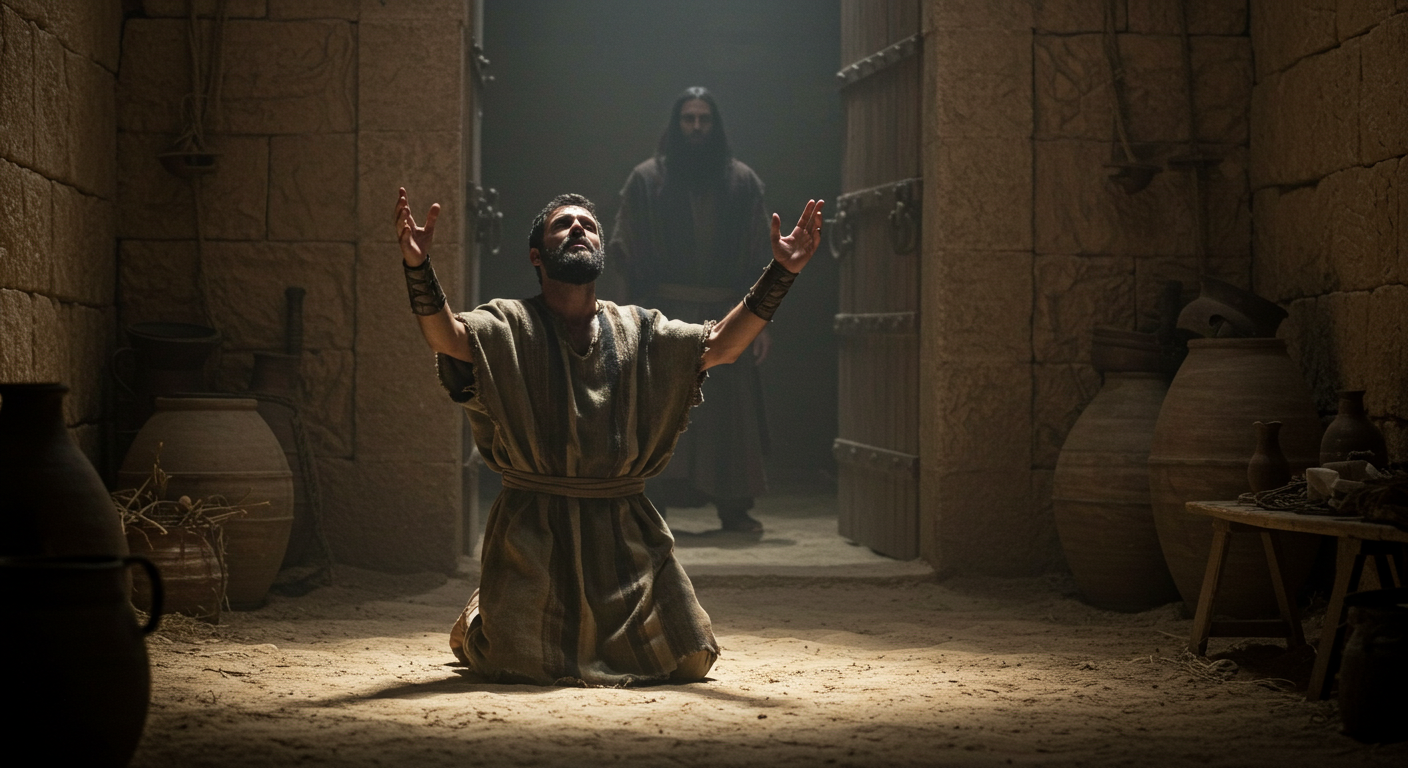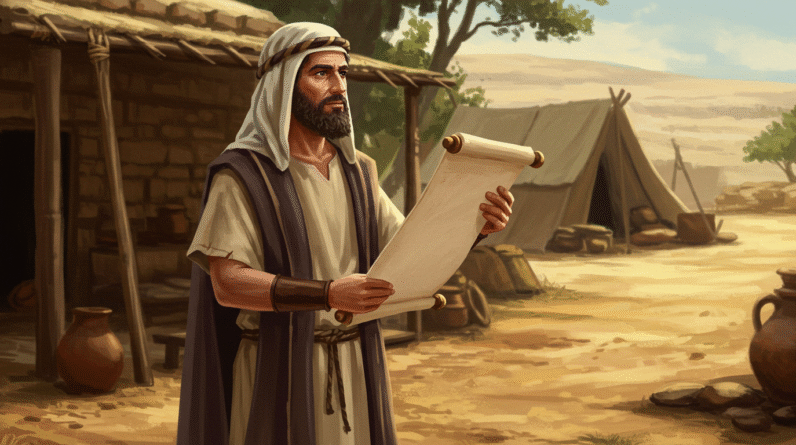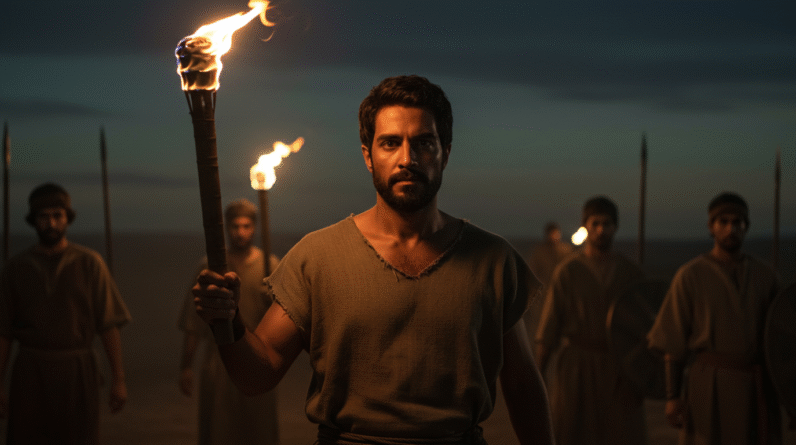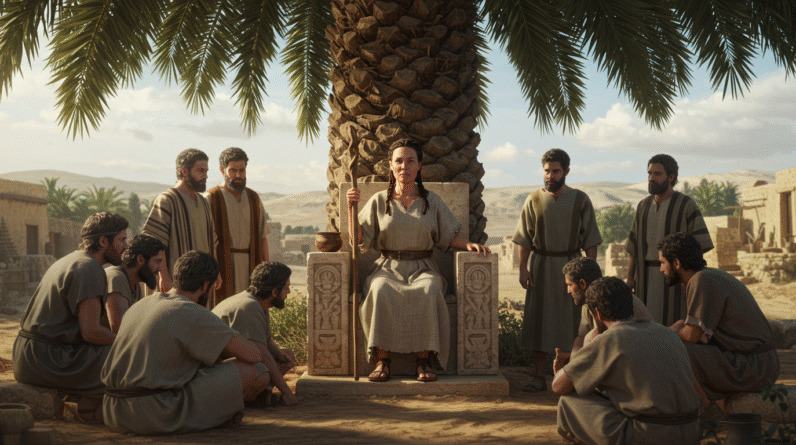The Vow of Jephthah: A Costly Promise to God
Whether you’re diving into the depths of biblical stories or just curious about the layers within them, exploring the Old Testament offers a rich tapestry of human experience and divine interaction. One such fascinating narrative is the story of Jephthah, an Israelite leader and warrior whose vow to God became a poignant lesson in promises and consequences. Prepare to delve into Jephthah’s vow as we walk through its context, implications, and the valuable lessons it holds for us today.
Getting to Know Jephthah: An Unlikely Leader
Jephthah’s story is nestled within the pages of the Book of Judges, a collection of the historical narratives detailing the tumultuous times of Israel’s judges. Jephthah hails from a complicated background. He was the son of Gilead and a prostitute, leading to a contentious relationship with his half-siblings and his eventual exile from his home. Despite these inauspicious beginnings, Jephthah’s leadership qualities shone through, garnering him the respect and recognition as a mighty warrior.
The Context of Jephthah’s Vow
Jephthah’s vow is central to his narrative and reveals the complexity of his character and faith. The vow can be found in the Book of Judges, Chapter 11. As Israel faced threats from the Ammonites, the elders of Gilead sought out Jephthah to lead their charge against the enemy. He agreed, under the condition that he would remain their leader if he were victorious.
Jephthah’s Vow: Setting the Stage
Jephthah’s vow emerges during a moment of desperation and fear, illustrating the human tendency to bargain with divinity when facing overwhelming odds. Before going into battle with the Ammonites, Jephthah made a solemn vow to God: Judges 11:30-31 (NIV), “And Jephthah made a vow to the Lord: ‘If you give the Ammonites into my hands, whatever comes out of the door of my house to meet me when I return in triumph from the Ammonites will be the Lord’s, and I will sacrifice it as a burnt offering.'”
The Cost of Jephthah’s Vow
The essence of any vow lies in its fulfillment. Jephthah’s vow was costly—heartbreakingly so. Upon his victorious return, it was his daughter, his only child, who came out to meet him with timbrels and dancing. This heart-wrenching turn of events plunged Jephthah into despair, highlighting the irrevocable nature of his promise to God Judges 11:34-35 (NIV).
Analyzing the Cost
At the core, the vow’s cost lay not only in the sacrifice but in the moral weight of that promise. Jephthah’s daughter, unnamed in the narrative yet key to its emotional impact, willingly accepted her fate, thus underscoring themes of duty, sacrifice, and obedience threaded throughout biblical stories. Through this account, we’re asked to consider what we are willing to offer up to fulfill promises made in moments of desperation or ambition.

Biblical Context and Reflection
The story of Jephthah’s vow challenges us to reflect on the dynamics of faith, duty, and human fallibility. In the cultural-religious landscape of ancient Israel, vows were considered binding and sacred. Ecclesiastes 5:4-5 NIV warns, “When you make a vow to God, do not delay to fulfill it. He has no pleasure in fools; fulfill your vow. It is better not to make a vow than to make one and not fulfill it.” This offers a sobering reminder of the gravity and solemnity attached to promises made before God.
Reflecting on Jephthah’s Decision
So why did Jephthah make such a vow? There are several possible explanations. It could be viewed as a futile attempt to earn divine favor or an echo of misguided zeal. This biblical narrative invites us to examine our motives when approaching the Divine—are we driven by genuine faith, or are our promises a product of self-serving intentions?
Lessons for Christians Today
The narrative of Jephthah’s vow holds timeless lessons for Christians and anyone navigating the complexities of faith and promises.
Consider the Consequences
One prominent takeaway from Jephthah’s vow is the importance of considering the consequences of our promises. Thoughtless vows can lead to unforeseen and often painful outcomes. Jephthah’s story serves as a poignant cautionary tale, urging us to weigh our words carefully and consider the potential implications of our actions.
The Heart of Worship
Jephthah’s story invites reflection on the nature of our relationship with God. The biblical narrative is replete with reminders that God values obedience and love over ritualistic sacrifices. Hosea 6:6 NIV reminds us, “For I desire mercy, not sacrifice, and acknowledgment of God rather than burnt offerings.” This underscores that sincere devotion and a heart aligned with God’s desires are far more valuable than rash promises.
A Caution Against Rash Vows
Throughout Scripture, there’s a recurring caution against making rash vows. The story of Jephthah impeccably aligns with Jesus’ teaching in Matthew 5:33-37 NIV regarding making oaths: instead, let your ‘Yes’ be ‘Yes,’ and your ‘No,’ ‘No.’ This encourages transparency and sincerity in our commitments rather than binding ourselves with vows that may lead to troubling consequences.
Moral and Ethical Implications
Jephthah’s vow offers fertile ground for moral and ethical reflections while highlighting the intense human emotions entwined within biblical narratives. This story is a vivid reminder of how personal ambitions and communal expectations can put us at the intersection of faith, duty, and morality.
The Value of Intentional Faith
Intentional faith asks us not simply to go through the motions, but to engage deeply with our beliefs and promises. Jephthah’s vow, although steeped in intense faith-driven intention, lacked wisdom and foresight. His narrative nudges us to cultivate faith enriched with understanding, patience, and thoughtfulness.
Questioning Cultural Norms
The backdrop of Jephthah’s narrative draws attention to broader cultural norms and practices. In a world where vows and sacrifices were interwoven into religious observance, Jephthah’s decision unveiled the potentially devastating costs of unchallenged traditions. It calls on each of us to question cultural norms under the light of moral integrity, empathy, and divine wisdom.
Engaging with the Story
The story of Jephthah’s vow invites us into a dialogue both with ancient texts and our modern lives. It’s a call to examine our own promises—those we’ve made to ourselves, others, and to God. In reading and reflecting on Jephthah’s narrative, we grapple with the complexities of human nature and divine interaction, drawing lessons that transcend time and resonate with our present-day spirituality.
Jephthah’s story is not merely a cautionary tale but an opportunity to foster deeper understanding and connection with the eternal themes of faith, sacrifice, and divine communion. As you navigate through the narratives of Sacred Scripture, allow Jephthah’s story to enrich your spiritual journey, urging careful reflection on the vows you make in moments of vulnerability and triumph.
Explore More
For further reading and encouragement, check out these posts:
👉 7 Bible Verses About Faith in Hard Times
👉 Job’s Faith: What We Can Learn From His Trials
👉 How To Trust God When Everything Falls Apart
👉 Why God Allows Suffering – A Biblical Perspective
👉 Faith Over Fear: How To Stand Strong In Uncertain Seasons
👉 How To Encourage Someone Struggling With Their Faith
👉 5 Prayers for Strength When You’re Feeling Weak

📘 Jesus and the Woman Caught in Adultery – Grace and Mercy Over Judgement
A powerful retelling of John 8:1-11. This book brings to life the depth of forgiveness, mercy, and God’s unwavering love.
👉 Check it now on Amazon
As a ClickBank Affiliate, I earn from qualifying purchases.
Acknowledgment: All Bible verses referenced in this article were accessed via Bible Gateway (or Bible Hub).
“Want to explore more? Check out our latest post on Why Jesus? and discover the life-changing truth of the Gospel!”








